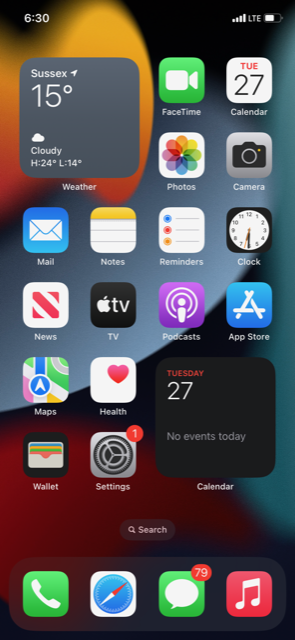In the last blog article, I suggested that we might be introducing too much technology into our lives too quickly. The smartphone has already replaced your family landline, your wristwatch, your camera, your calendar, your alarm clock, and even your calculator and TV set. Don’t let it replace your family as well.
It has already started to chip away at one-on-one family time with social media, electronic games, instant messaging, and its copious entertainment selections. Life is not meant to be a game of solitaire, but a variety of experiences with family, friends, and others. Social connections until recently have been in person, doing things together, not just a matter of a digital “follow” or “like.” Now, people “friend” one another without being friends, and “IM” one another without even having met.
There is little health benefit in a digitally sent “LOL” compared to physically laughing together, while real friendships and social interactions are known to increase both health and longevity.
An online poll of over 1000 Canadian adults released by Angus Reid/Vision Critical (Toronto Star, January 26, 2013) revealed that 90% of the respondents believed their smartphones made their lives more convenient. So convenient, evidently, that 30% of them went online before getting out of bed, 31% at the dinner table, 29% in the washroom and 42% before falling asleep at night.
Smartphones seem smart, because they make many of us so willing to be at their beck and call. But they lack intelligence. And the Internet leads everywhere, which for the undisciplined means nowhere. Why browse away the hours? Email, computer games and social media are endless, but our time is not.
It’s great to be able to reach anyone from anywhere simply by tapping your device. And to get directions if you’re lost or in need of help. And the convenience of a calculator, translator, or pocket recorder at your fingertips. But the smartphone is becoming more than just an assist in life. It’s becoming a lifestyle. As one person mentioned, “I temporarily lost my iPhone, and it was like losing my best friend.” It may well be her best friend.
There is an old saying that suggests, “Wherever you are, be there.” But with a smartphone, I find that people can be anywhere, whether they are physically in a meeting, in a church, or at the dinner table. We have a separation of mind and body. And frequently the mind doesn’t know what the body is doing. So, we don’t recall what we had for lunch because our mind that was somewhere else at the time. Or we drive past our destination or don’t hear a word of what our companion just said, and so on.
There’s more electronic devices to manage besides the smartphone, and probably the largest consumer of time for most people is social media.
Facebook, the largest social networking site, was launched at Harvard University in 2004. By 2009, there were over 250 million people in 170 countries and territories on every continent, and almost half its users visited the site every day. In 2014, Facebook boasted 1.32 billion active users spending an average of 40 minutes a day on the social media giant. By April of 2023, this has increased to just under 3 billion people, but due to the greater number of social media sites, people are only spending an average of 33 minutes a day on Facebook.
But get this. Taking all social media platforms into consideration, as of January 2023, 4.76 billion people were actively using social media, and spending about two and a half hours a day. For people under 35, it’s about five and a half hours a day.
And that’s just social media. If you’re including the Internet, computer games, TV, and the use of computers or laptops at work, you are probably exposed to digital screen of one kind or another the greater part of the day. And I believe that television is still the number one leisure activity in North America and Europe.
What impact is all this screen time having on our work performance, interpersonal relationships, education, family life, health, and general well-being? Well, that’s too much to handle in one article, so I’ll cover that in my next blog article, I’ll quote some statistics and the results of a few studies, as well as my own observations – and perhaps a prediction or two.
But before I leave, I’ll predict that communication will become more of a problem as we all try to keep our e-mail and instant messages as brief as possible. Consider as an example this joke appearing in a recent article.
A woman texts her husband on a cold winter morning:
“Windows frozen.
Husband texts her back:
“Pour some lukewarm water over it.”
Woman texts back:
“Computer completely dead now. “


Recent Comments